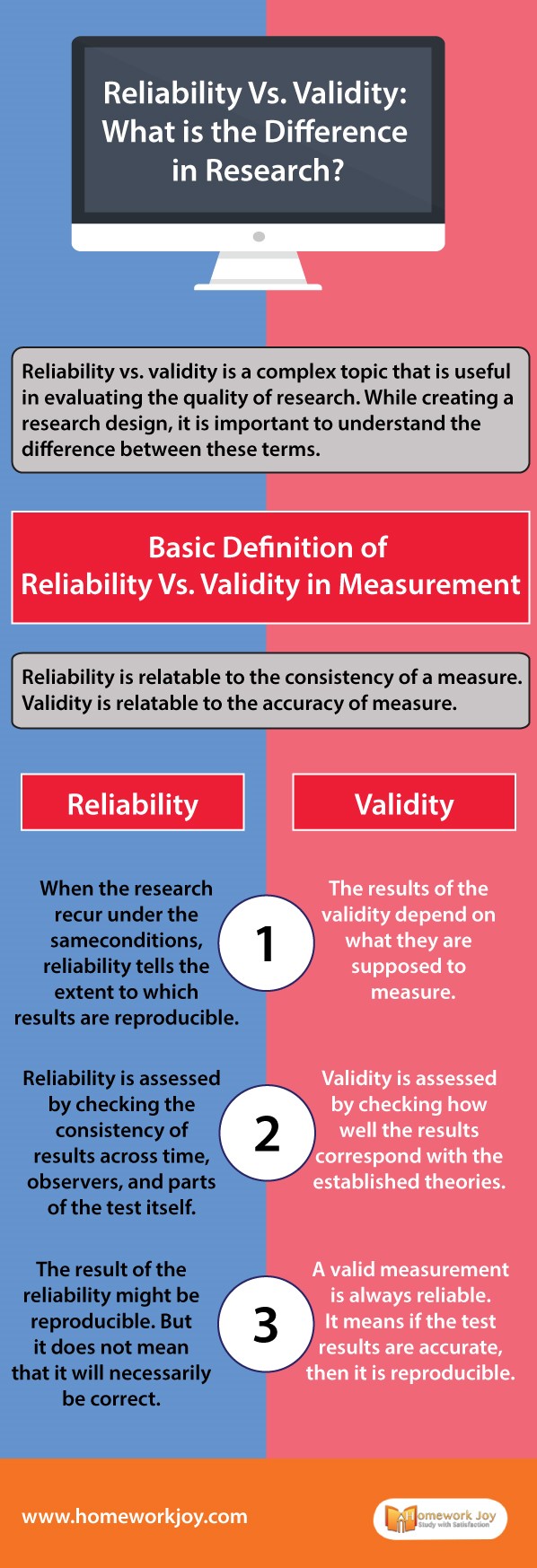Reliability vs. validity is a complex topic that is useful in evaluating the quality of research. While creating a research design, it is essential to understand the difference between these terms.
Also, read related posts:
Difference Between Regression Vs. Correlation
Basic Definition of Reliability Vs. Validity in Measurement
Reliability is relatable to the consistency of a measure.
Validity is relatable to the accuracy of measure.
What is Reliability?
- When the research recur under the same conditions, reliability tells the extent to which results are reproducible.
- Reliability is assessed by checking the consistency of results across time, observers, and parts of the test itself.
- The result of the reliability might be reproducible. But it does not mean that it will necessarily be correct.
Different Types of Reliability
There are three common types of reliability in statistics.
Test-retest
It measures the consistency of results when we repeat the same test on the same sample at different intervals. We use it when we want something to stay constant in the sample. For example, a group of people performs a test that has some personality questions. After a month or week, they retest, and their answer remains the same. Then it indicates that there is high test-retest reliability.
Interrater
Interrater is the type of reliability measures the degree of agreement between different people observing or assessing the same thing. It is useful when data is collected to assign ratings, scores, or categories to one or more variables. For example, when researchers collect data on classroom behavior and thus categorize or rate different types of behavior.
Internal Consistency
It assesses the correlation between multiple items in a test to measure the same conduct. It is the best way of determining reliability when there is only one set of data—for example, measuring customer satisfaction with an online store.
What is the Validity?
- The results of the validity depend on what they are supposed to measure.
- Validity is assessed by checking how well results correspond with the established theories.
- A valid measurement is always reliable. It means if the test results are accurate, then it is reproducible.
Different Types of Validity
The following are three main types of validity in statistics.
Construct
A theory or concept that can’t be observed directly but measurable while observing other indicators associated with it.
Criterion
It measures how closely the results of your test correspond with the results of different tests. If the correlation is higher, it is a good indication, and your test is measuring what it intends to measure.
Content
It validates whether the test is representative of all aspects of the construct or not. If some aspects are missing from the measurement, the validity is not there.
So these were some differences between reliability vs. validity in research. If you need more economics homework help, then contact us. We are 24×7 available with our team.
